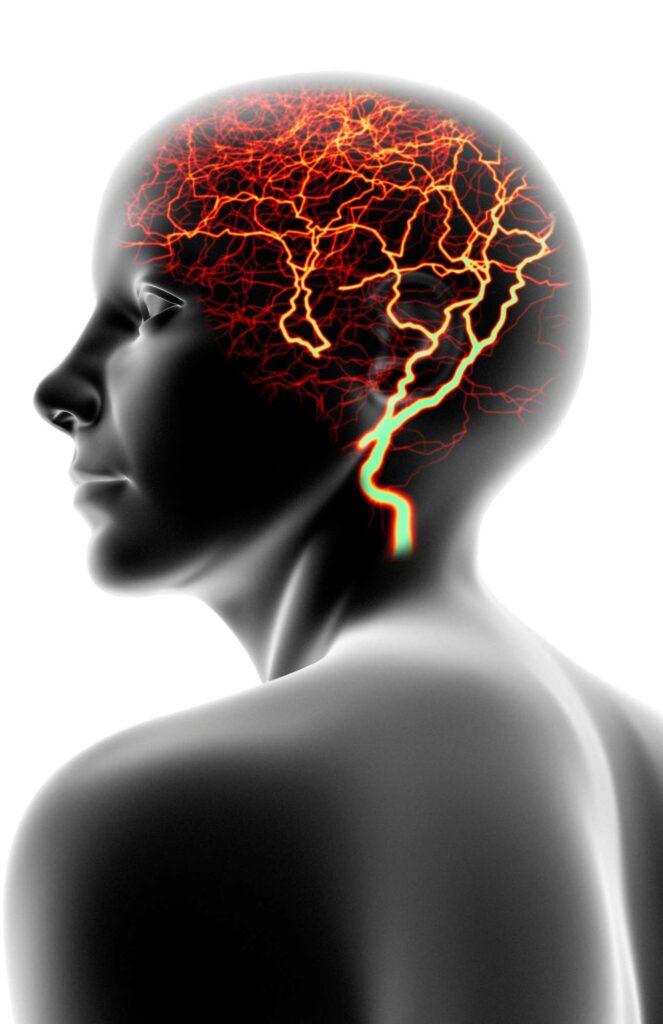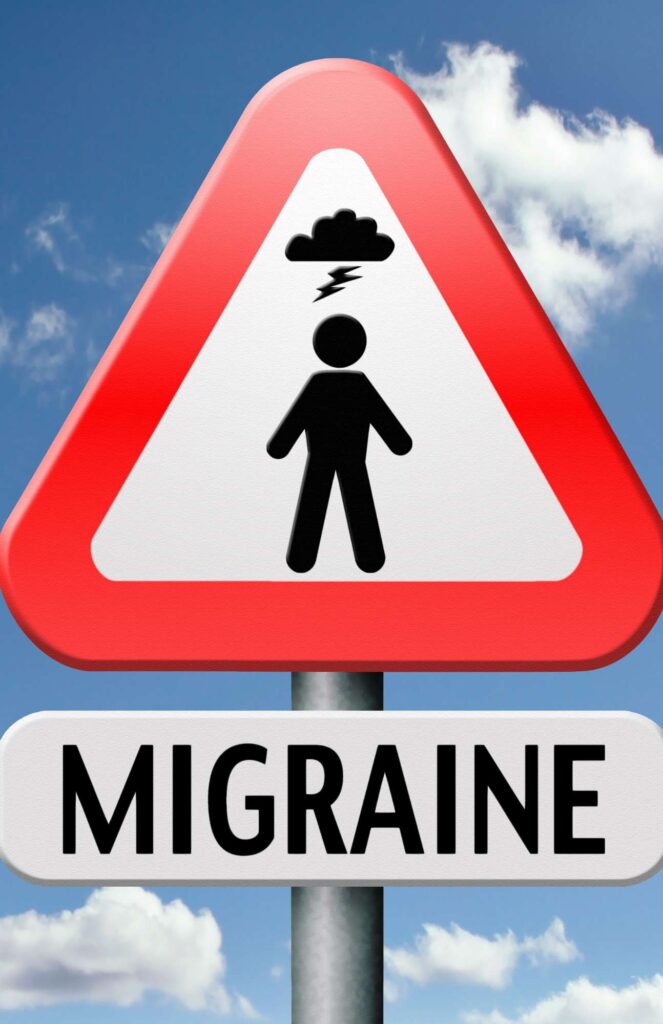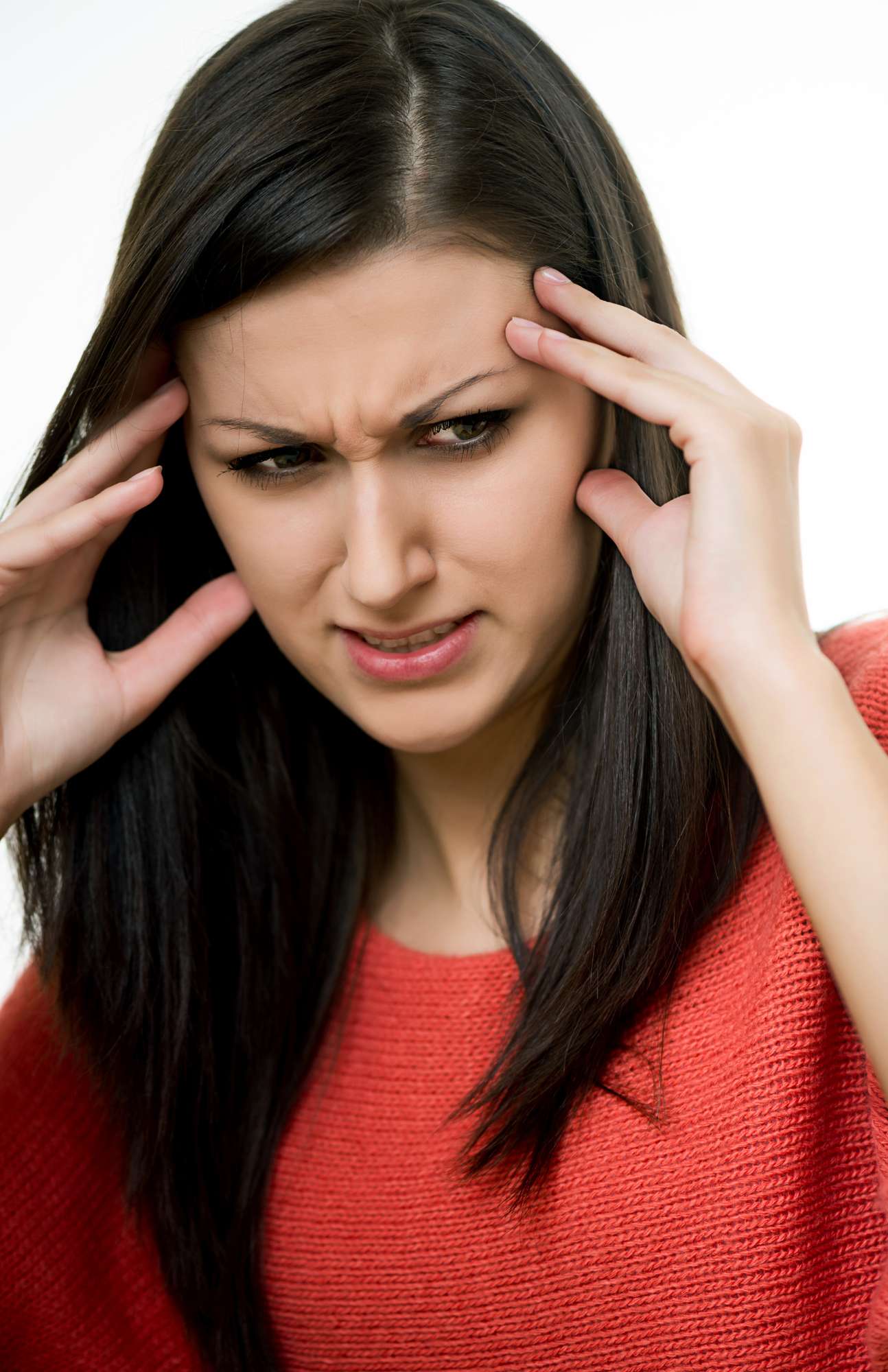Does TMJ Cause Migraines? Find Out What to do!
Temporomandibular joint disorder (TMJ) or temporomandibular disorders (TMD) and migraines are two common conditions that can significantly impact a person’s quality of life. I know that they have greatly impacted MY life!
While they may seem unrelated, there is growing evidence suggesting a possible link between TMJ and migraines.
So, does TMJ CAUSE migraines?
In this article, we will delve into the intricacies of these conditions, explore the connection between TMJ and migraines, and discuss various treatment options that can help alleviate symptoms.
Table of Contents
The Link Between TMJ and Migraines
TMJ refers to a disorder affecting the joints and muscles that control jaw movement. It can cause pain and discomfort in the jaw joint, face, and neck, along with other symptoms such as clicking or popping sounds when opening or closing the mouth.
Migraines, on the other hand, are severe headaches often accompanied by nausea, sensitivity to light and sound, and visual disturbances. While TMJ and migraines may have different symptoms, studies have revealed a potential association between the two.

Common Symptoms of TMJ
TMJ can manifest in various ways, and the symptoms may vary from person to person. Some common signs of TMJ include:
- Jaw pain: Individuals with TMJ often experience facial pain or tenderness in the jaw joint, which can radiate to the face and neck. Jaw pain during pregnancy happens due to an increase in joint laxity.
- Restricted jaw movement: TMJ can make it difficult to open or close the mouth fully, leading to limited jaw mobility from tight jaw muscles.
- Clicking or popping sounds: Many people with TMJ may hear clicking, popping, or grating sounds when moving their jaw.
- Headaches: TMJ headaches are often localized around the temples or behind the eyes.
- Ear pain or ringing: TMJ can cause discomfort in the ears, including pain, fullness, or ringing sensations.
Common Symptoms of Migraines
Migraines are intense headaches that can last for hours or even days. Some common symptoms associated with migraines include:
- Throbbing or pulsating pain: Migraines typically involve a moderate to severe headache that throbs or pulses. Location is typically on the side of the head.
- Nausea and vomiting: Many individuals with migraines experience nausea, sometimes leading to vomiting.
- Sensitivity to light and sound: Migraines often worsen in bright lights or loud environments.
- Aura: Some people experience visual disturbances or auras before the onset of a migraine, such as seeing flashing lights or zigzag patterns.
- Fatigue and irritability: Migraines can leave individuals feeling exhausted and irritable even after the headache subsides.

Other types of headaches
Tension Headaches: Tension-type headaches is the most common type of headache and are typically caused from chronic stress. No surprise there! Neck pain and tightness in the surrounding muscles of the shoulder, neck and jaw can create chronic headaches.
Cluster Headaches: Cluster headaches are a type of neurological disorder that cause severe, debilitating pain. They are believed to be caused by overactivity in certain parts of the brain and can affect both men and women.
Symptoms of cluster headaches include intense stabbing pain around one side of the head, sweating on the same side, redness or tearing in the eye on the same side as well as nasal congestion or a run
Hormonal Headaches: Hormonal changes throughout a woman’s monthly cycle can trigger painful headaches in a cyclical pattern.
Dehydration Headaches: Dehydration headaches are caused by not consuming enough liquid throughout the day. It can happen by losing too much water due to a hard workout, being sick (vomiting with or without diarrhea) or just simply forgetting to drink enough throughout the day.
Research Studies on the TMJ-Migraine Connection
Numerous research studies have explored the potential link between TMJ and migraines. One study investigated the prevalence of TMJ symptoms in individuals with chronic migraines. The results showed that a significant proportion of the participants with chronic migraines also reported symptoms related to TMJ, suggesting a possible association between the two conditions.
Another study published in the Journal of Pain examined the effectiveness of TMJ treatments in reducing migraine frequency and severity. The findings indicated that addressing the underlying TMJ issues through targeted treatments resulted in a reduction in migraine symptoms for some participants.
While these studies provide valuable insights, further research is still needed to fully understand the complex relationship between TMJ and migraines.

Does TMJ cause Migraines?
The exact mechanism by which “does TMJ cause migraines?” is not yet fully understood. However, several theories have been proposed. One theory suggests that the muscle tension and inflammation associated with TMJ pain can trigger nerve pathways that lead to migraines.
Another hypothesis suggests that the close proximity of the trigeminal nerve, which is involved in both TMJ and migraines, might play a role in their connection.
Additionally, the pain caused by TMJ can contribute to stress and anxiety, known triggers for migraines. The interplay between physical and psychological factors in TMJ and migraines highlights the importance of a comprehensive approach to treatment.
Treating TMJ to Alleviate Migraines
The good news is that by addressing TMJ symptoms can potentially alleviate migraine pain or reduce their frequency and severity. Here are some treatment options commonly used for TMJ migraine headaches:
Non-invasive treatment options for TMJ and migraines
- Lifestyle changes: Simple lifestyle changes, such as avoiding hard or chewy foods, practicing stress-reducing techniques like yoga or meditation, and maintaining good posture, can provide relief for TMJ and migraines.
- Physical therapy: A physical therapist can guide you through exercises and techniques to improve jaw mobility, reduce muscle tension, and alleviate TMJ and migraine symptoms.
- TENS machine: Using a TENS machine for migraine headaches can be very helpful in decreasing the intensity and duration of each migraine headache.
- Oral appliances: Dentists specializing in TMJ disorders may recommend the use of oral appliances, such as splints or mouthguards, to help realign the jaw and alleviate TMJ-related pain.
Lifestyle changes that can help manage TMJ and migraines
- Stress management: Stress is a common trigger for both TMJ and migraine attacks. Engaging in relaxation techniques, getting regular exercise, and finding healthy coping mechanisms for stress can help manage symptoms.
- Diet modifications: Certain foods and beverages, such as caffeine, alcohol, and foods high in additives or preservatives, can be a migraine trigger. Keeping a food diary and identifying potential triggers can help manage both TMJ and migraines.
- Good sleep hygiene: Getting enough quality sleep is essential for managing both TMJ and migraines. Establishing a consistent sleep schedule, creating a comfortable sleep environment, and practicing relaxation techniques before bed can improve sleep quality.
Here are also some of the best natural remedies for TMJ pain relief to try!

Seeking Professional Help for TMJ and Migraines
If you are experiencing severe pain associated with TMJ or migraines, it is crucial to seek professional help. A healthcare provider, such as a TMJ dentist, neurologist, or orofacial pain specialist, can evaluate your symptoms.
Those medical professionals will conduct a physical exam, run diagnostic tests, provide an accurate diagnosis, and recommend appropriate treatment options tailored to your specific needs.
For more severe cases, prescription medication for acute or chronic pain relief may be needed for both TMJ treatment and migraine sufferers.
Do not hesitate to reach out and seek the support you need to manage TMJ and migraines effectively. Remember, you are not alone! There are solutions available to help find the root cause of your symptoms to help you improve your quality of life.
Conclusion
While the exact answer to “does TMJ cause migraines?” is still being investigated, evidence suggests a potential link between the two conditions. Understanding the symptoms and seeking professional help is vital for accurate diagnosis and effective treatment.
By addressing TMJ symptoms and implementing lifestyle changes, individuals can potentially alleviate migraines or reduce their frequency and severity.
If you are experiencing symptoms of TMJ or migraines, do not hesitate to consult a healthcare professional who specializes in these conditions. Together, you can unravel the mystery and find relief from the debilitating effects of TMJ and migraines.







One Comment
Comments are closed.